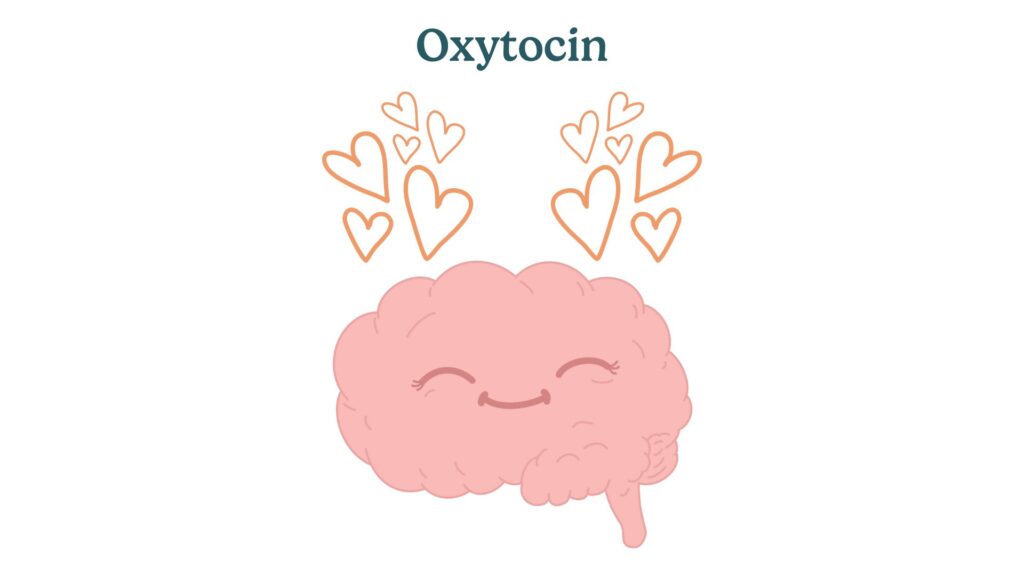oxytocin

Oxytocin
Oxytocin is a hormone produced by your brain's hypothalamus and released by the pituitary gland. It's often called the "love hormone" because it helps with bonding and emotional connection.
Oxytocin plays an important role in the let-down reflex, which helps your baby get milk from your breasts. When your baby suckles, oxytocin is released, causing the muscles around the milk-producing alveoli to contract and push milk through the ducts to your nipple.
To learn more, read the wonders of oxytocin in breastfeeding.
What to watch out for
Keep an eye on the following issues related to oxytocin and breastfeeding. Knowing these can help you address potential problems and seek help when needed.
- Delayed let-down reflex: Sometimes, the let-down reflex can be slow or delayed, making it harder for your baby to get milk. Stress, fatigue, or anxiety can affect oxytocin release. Try to relax and find a comfortable breastfeeding position. Deep breathing, gentle massage, or warm compresses can help stimulate the let-down reflex. Learn more about understanding breastmilk let-down.
- Insufficient milk ejection: If your milk isn’t flowing well, your baby might get frustrated or not get enough milk. Ensure your baby has a good latch and try breastfeeding in a calm environment. If the problem persists, seek help from a lactation consultant. If you chronically struggle to have a letdown, consider speaking to your provider about an oxytocin nasal spray. Read more about improving your baby's latch.
- Engorgement: Engorgement can occur when milk isn't removed effectively due to poor let-down. This can make your breasts feel hard and painful. Frequent breastfeeding or pumping, gentle breast massage, and warm compresses before feeding can help alleviate engorgement. Learn more about managing engorgement.
Physical limitations or health circumstances
Certain health conditions or physical limitations can affect oxytocin release and the let-down reflex. Here are a few to be aware of:
- High stress levels: Stress and anxiety can inhibit oxytocin release, making it harder for your milk to let down. Finding ways to relax and reduce stress, such as deep breathing, meditation, or support from family and friends, can help improve your let-down reflex. Read more about reducing stress for better breastfeeding.
- Previous breast surgery: Surgeries like breast reduction or augmentation can affect the milk ducts and the response to oxytocin. The extent depends on the type of surgery and techniques used.
- Medications: Some medications can interfere with oxytocin release and the let-down reflex. Always check with your healthcare provider before starting any new medication while breastfeeding.
Other terms
Understanding these related terms can help you better grasp the role of oxytocin in breastfeeding:
- Prolactin: This hormone stimulates the alveoli to produce milk. Prolactin levels increase during pregnancy and nursing, helping maintain your milk supply.
- Let-down reflex: Triggered by oxytocin, this reflex helps release milk from the alveoli and sends it through the milk ducts to your nipple. Read more about understanding breastmilk let-down.
- Milk ducts: Tubes that transport milk from the alveoli to the nipple.
- Alveoli: Small clusters of cells in the breast that produce milk in response to prolactin.
- Engorgement: When your breasts become overly full of milk, making them feel hard and painful. Learn more about managing engorgement.


